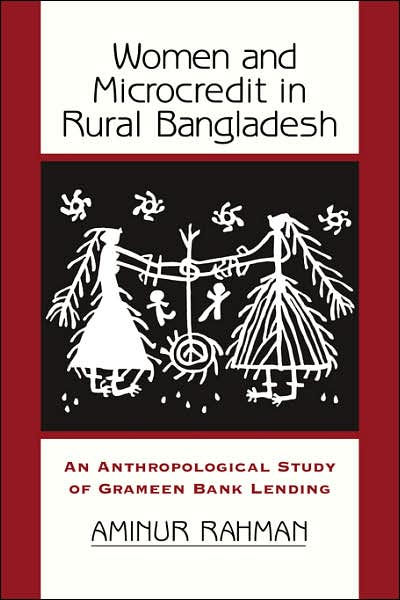Promotion
Free shipping on orders $45+ Shop Now.
Women And Microcredit In Rural Bangladesh
An Anthropological Study Of Grameen Bank Lending
Contributors
Formats and Prices
Price
$40.00Format
Format:
- Trade Paperback $40.00
- ebook $25.99
This item is a preorder. Your payment method will be charged immediately, and the product is expected to ship on or around March 14, 2001. This date is subject to change due to shipping delays beyond our control.
Also available from:
The Grameen Bank of Bangladesh has been extending small loans to poor borrowers (primarily women) to promote self-employment and income generation since 1976. The apparent success of the Grameen Bank (that is, recruitment of clients, investment of loans, recovery rates on invested loans and profit margins) has made microcredit a new model for poverty alleviation and sustainable development. Anthropological research results on Grameen Bank lending to women presented in this book, however, illuminates the link between the success of the bank and debt-cycling of borrowers. The priority of earning profits to insure institutional economic viability caused Bank employees at the grassroots level to emphasize increasing the number of loans disbursed and loan recovery. By using the joint liability model of lending, the Bank workers and borrowing peers impose intense pressure on clients for timely repayment. Many borrowers maintain their regular payment schedules, but do so through a process of loan recycling (that is, pay off previous loans with new ones) that considerably increases borrower debt liability. The debt burdens on individual households in turn increase tension and anxiety among household members and produce unintended consequences for many clients.This book examines women borrowers' involvement with the microcredit program of the Grameen Bank, and the grassroots lending structure of the bank; it illustrates the implications of Grameen lending for the borrowers, their household members and bank workers. The focus of the study is on the processes of village-level microcredit operation; it addresses the realities of the day-to-day lives of women borrowers and bank workers and explains informant strategies for involving themselves in this microcredit scheme. The study is on the power dynamics of everyday lives of informants as they affect women borrowers' relationships within the household and the loan centers, and bank worker relationships within the loan center and the bank.
Genre:
- On Sale
- Mar 14, 2001
- Page Count
- 200 pages
- Publisher
- Avalon Publishing
- ISBN-13
- 9780813339306
Newsletter Signup
By clicking ‘Sign Up,’ I acknowledge that I have read and agree to Hachette Book Group’s Privacy Policy and Terms of Use







